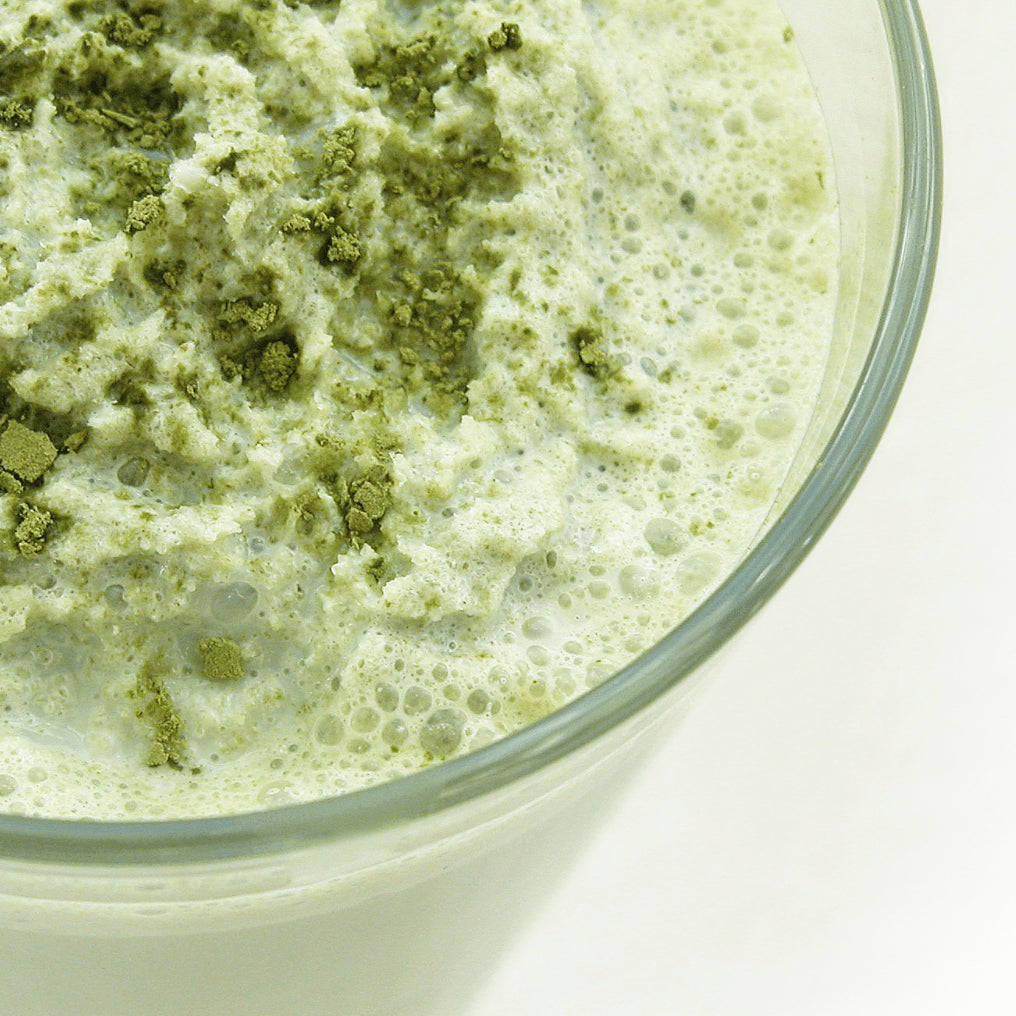Matcha green tea lattes take over in Starbucks’ West Coast backyard
Posted by PETER - TEAS.COM.AU

West Coast bartenders have given up Red Bull, brokers are powering past the espresso machine and everyone’s quit smoking, so why drink coffee?
People in the know have moved on and are licking green mustaches as their proof of enlightenment.

It comes from matcha, a potent green tea that is taking over coffeehouse menus and going mainstream in lattes, smoothies and facials.
Vancouver’s Infuze Teahouse helped spark the craze locally last year, serving the ancient beverage in a downtown, spaceage-styled boite. California is transfixed by the city’s appetite for matcha, and Infuze is now in talks to supply an American juice company with 450 outlets.
Infuze owner Brian Takeda ministered to Vancouver’s curious yoginis, fashionistas and cool hunters like a doctor, patiently giving each customer a lesson in matcha’s endless health benefits.
“The caffeine in green tea functions differently, producing a different feeling than you get from a cup of coffee,” he says.
Matcha’s high L-theanine content relaxes the brain, muscles and blood vessels, confirms Janina Kulhay-Matsuda, owner of Toronto’s Kulhay Wellness Centre.
She has studied matcha for over a decade.
“Matcha has the lowest caffeine level of any green tea. It’s the L-theanine in matcha that makes people alert. The body can’t absorb it as quickly as caffeine, so that pick-me-up lasts for about eight hours. At the same time L-theanine acts on the brain to relax and focus people,” she said.
It gets better: a cup of matcha contains 70 times the antioxidants of a cup of orange juice and nine times the beta carotene of a serving of spinach.
Kulhay-Matsuda prescribes it to diabetics because she says it also balances blood sugar levels in the body.
All that goodness comes without the gut rot, jitters or headaches that can be found at the bottom of a coffee pot.
East Coasters still have to sort through the seaweed and sushi rice on the shelves of Asian markets for matcha and when they find it, it’s usually stale.
Takeda flies his matcha from Japanese fields to Germany, where it is certified organic, and then flown straight to Vancouver. No slow-boat shipping, he only serves matcha that has been freshly harvested.
Recently, a handful of Toronto retailers decided to stock his high-end product.
Tea trends always break out in Vancouver years ahead of Toronto, said Louise Roberge, president of the Tea Council of Canada.
While Starbucks is still making chai latte converts in the East, it’s Vancouver competitor, Blenz, has built a tea temple in its flagship store. Here, customers are willing to wait the three minutes it takes for their matcha to be mixed in a traditional Japanese bowl with a wooden whisk.

The entire matcha plant is ground into a powder. Each cup is individually blended by hand into water that is heated to a precise temperature.
Because consumers are actually drinking the plant – instead of just water infused with its flavour as is the case other tea – matcha promotes regular bowel movements, said Kulhay-Matsuda.
Milk and honey interfere with much of the tea’s healing properties, she warned, demoting Blenz’s matcha ice cream smoothie and sweetened matcha latte from superfood status to coffee alternative.
But the company’s marketing manager, Walter Sawadsky, said the matcha drinks have exceeded their wildest expectations.
“In Vancouver, it’s crossed all lines of ethnicity, gender and age in terms of its popularity.”
He said the product earned that acclaim based solely on taste.
The company may mount a campaign about the health benefits of matcha once it makes a decision on whether to sell it at all stores in its pure form, without the honey and milk.
Currently, Blenz is testing straight matcha at select downtown Vancouver locations only.
Takeda has binders on hand stuffed with studies extolling the virtues of matcha by scientists at Rutgers, UCLA and Harvard, which he happily whips out for sceptics.
Most nutritionists agree at the very least that it is antioxidant rich.
Emily Cheng-Koh, a Chinese medical practitioner in Toronto, said matcha has been shown to help the lungs dissolve mucous and phlegmatic accumulations.
“It is good for the immune system, a good complement to a healthy diet, but it’s not something I would use as a therapy on it’s own.”
Japan, she said, has the highest rate of smokers and the lowest rate of lung cancer. People there drink about eight cups of green tea a day and that definitely plays a role in their health, she said.
“But there’s a lot more to it than that. For example, they eat a lot of seaweed which is known as an immune enhancer.”
“It’s a tendency of the West to focus on one therapy, one ailment, one medicine.
Things like green tea and gingko are just part of our lives, they have been for hundreds of years. It's just exotic to the West and people are fixated on them."
Article from:
http://forum.lowcarber.org/archive/index.php/t-225213.html
2004

AUSTRALIA'S FINEST LOOSE LEAF TEAS
Explore Australia's largest selection of Premium Teas & All-Natural Organic Herbal Blends.


